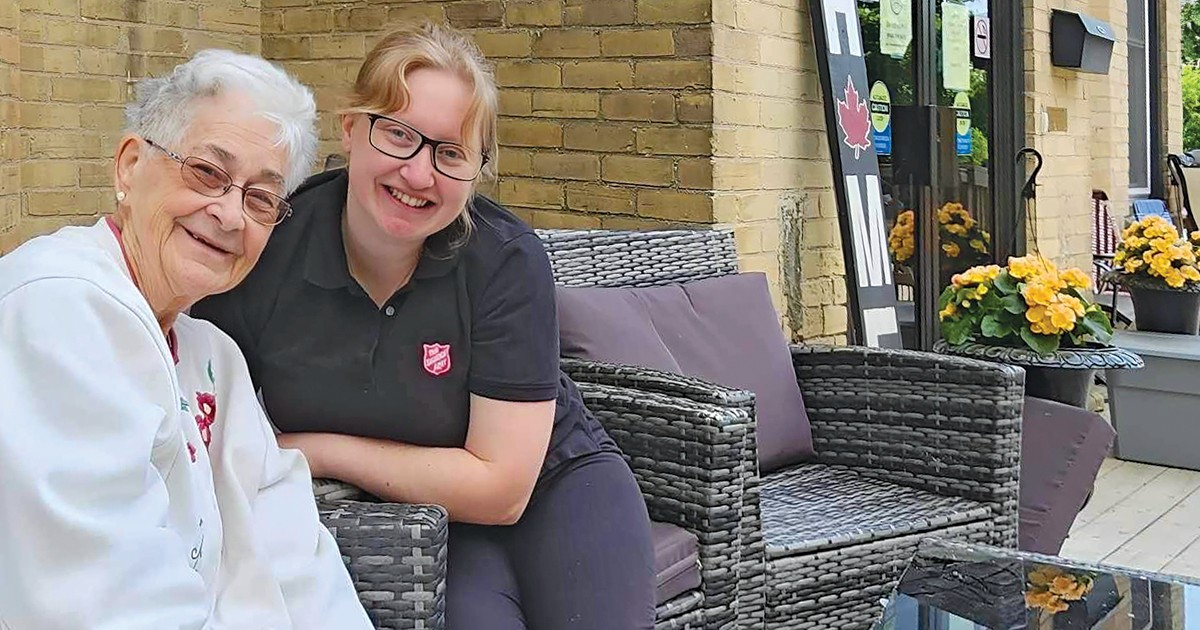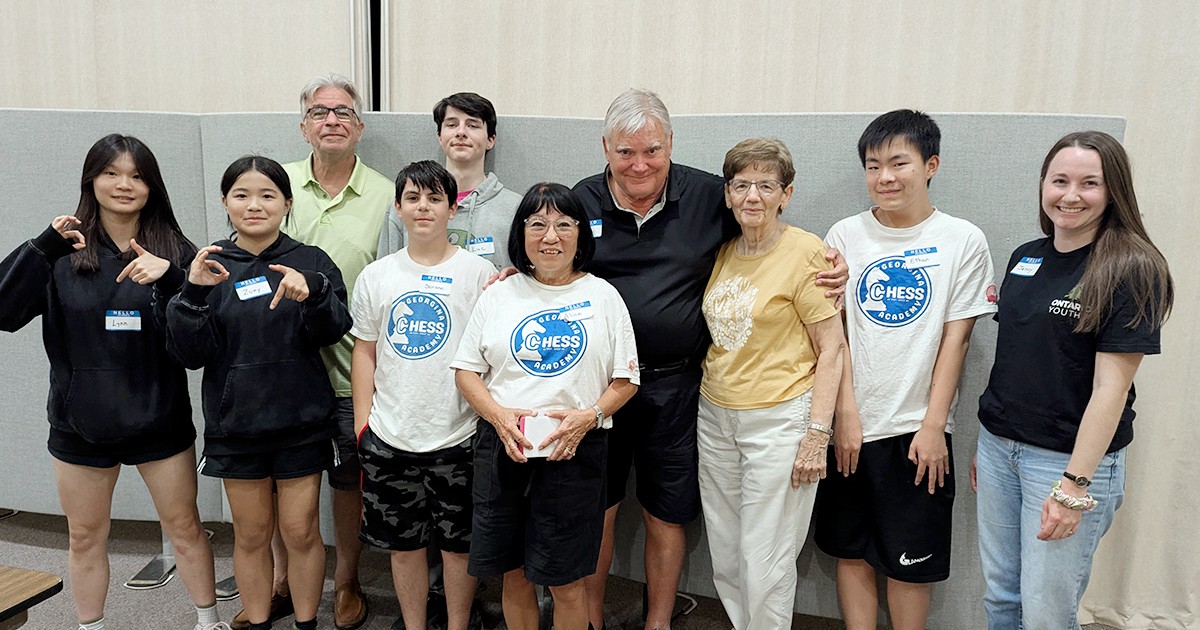(Above) As a participant in the ministry placement program, Cdt Chesney Edwards (right) met with Janet Hubbard regularly to pray and read Scripture, in her home or at a local coffee shop, offering pastoral care as she faced a medical diagnosis (Photo: Cdt Joshua Edwards)
Last September, as I was arriving at Toronto’s Etobicoke Temple for field-based training, the corps officers told me there was an elderly woman in the hospital who needed pastoral care. Although she had never attended church, she had graciously supported The Salvation Army for many years, and her family knew she would want us to visit and pray with her. As I was a new cadet, my supervising officer asked me to join him.
I have always loved and cared for people. When my husband, Joshua, and I spent a year serving in the ministry placement program in Wingham, Ont., I felt God calling me into pastoral care ministry. When church members were struggling, I visited them in their home, hospital or nursing home to pray with them and their families and read Scripture to them. So, I was glad for this opportunity.
When we got to the hospital, the receptionist said that the woman was alert but unable to speak. We found her room, and I stood at the side of her bed. I took her hand as the officer spoke in her ear quietly, explaining why we were there, where we came from and that we felt led to pray for her. She gently squeezed my hand. As he began to pray, she squeezed a little harder and opened her eyes slightly.
Informed by the receptionist earlier that she could only hear out of her right ear, I moved to the other side of the bed so I could read Scripture to her. Speaking softly into her ear, I told her I was going to read Psalm 23. Her eyes were still slightly open and the officer now had his hand in hers. As I began to read the Scripture, her eyes widened, and the officer told me that she was squeezing his hand. I knew she recognized the Psalm I was reading. I felt as though she was reading it with me, although she couldn’t physically speak.
As I looked up from the page, I noticed a tear rolling down her cheek. I continued to read the psalm slowly and clearly. The Holy Spirit was in that room. I forgot everything I needed to do that day, and knew I was exactly where I needed to be.
Psalm 23 reads, “The Lord is my shepherd.” A shepherd protects and cares for their sheep. The word pastor comes from this image—pastors or Salvation Army officers care for God’s people. This role is one of the five gifts given by Christ to the church in Ephesians 4. When pastors or Salvation Army officers provide spiritual or pastoral care to people in need, such as those struggling with physical or mental illness, they do it with the ability that God gives them. God uses his human shepherds to provide this care for his people so that they can know him and learn his truths.
Pastoral care is also important for those who don’t know Jesus. God can use his people to help others know that they can lean on him when they are struggling. This can bring a sense of peace in their lives when they know they are being prayed for and that there is someone there who cares for and loves them and won’t judge them for what they are going through. Pastoral care is showing and sharing the love of Jesus to his people and to the community, no matter what, even if they don’t know Jesus.
A few days after we visited the woman in the hospital, I was informed that she went home to be with the Lord. God bless her and her family. I am so thankful I was able to speak the Lord’s words into her life in her final days.
Cadet Chesney Edwards attends the College for Officer Training in Toronto.
This story is from:










Chesney was a beautiful story and incredible privilege Pastoral Care is. Keep shining your light Sister🙏🏼